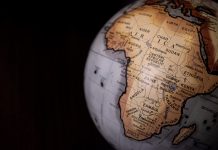Unsurprisingly, terrorism-related events, especially those connected with recent happenings in the Middle East, have been a dominant topic in news headlines globally.
Sigma360‘s dynamic risk event tracker has recorded significant week-by-week spikes across the entire Africa & Middle East region. In just the Middle East, 614 new events have been recorded. Beyond this, it’s essential to be aware of other emerging threats within the international financial system, like the potential ways Hezbollah could gain access and benefit through diamonds, art, and real estate.
Earlier adverse media reports this year shone a spotlight on the U.S. Treasury’s announcement of new Hezbollah-linked sanctions.
These sanctions spanned across 52 individuals and entities worldwide, including locations like Lebanon, the UAE, South Africa, Angola, Ivory Coast, the Democratic Republic of the Congo, Belgium, the UK, and Hong Kong. It is crucial to analyse and understand the flow of these funds, identifying the specific types of companies, countries, and industries involved. Given the current geopolitical situation, such understanding becomes paramount.
Several specific instances provided by the Treasury underscore this:
Mega Gems (PTY) LTD in South Africa operates within the diamond industry. Similarly, MSD Capital, MSD DMCC, and MSD SPRL Diamond Trading are also connected to the diamond trade. Artual Gallery in Lebanon and DID in Cote d’Ivoire represent art galleries in the MENA & Africa region. United Investment Group SAL in Lebanon is associated with real estate in the Middle East, while White Star DMCC in Dubai acts as a front for various financial activities.
These examples demonstrate the vast, sophisticated network designed to evade sanctions, launder money, and transfer value, Sigma360 explained. But it’s just the beginning. Numerous individuals and companies, both named and unnamed, collaborate to support Hezbollah and potentially Hamas, as public reports suggest a connection.
MSD’s connections extend to multiple non-sanctioned entities, whose roles in supporting Hezbollah and bypassing sanctions remain uncertain. The rapid movement of funds, both direct and indirect, intensifies as the ongoing conflict escalates. Monitoring media narratives and reviewing network risks for potential terrorist connections becomes a matter of urgency.
The Sigma360 country risk model, which evaluates risks across financial crime, regulation, geopolitical, and corruption exposure, provides insights into the aforementioned countries:
- Lebanon: high risk, especially concerning financial crime.
- South Africa and Hong Kong: Medium overall risk but high in terms of financial crime.
- Angola and the Democratic Republic of the Congo: high risk, with financial crime risk at its peak.
- Belgium and the United Kingdom: Relatively low risk, though both have elevated financial crime concerns.
Closely examining transactions involving these countries, especially those concerning precious stones, art, and real estate, can offer additional layers of control and security.
Sigma360’s risk decisioning software platform can assist organisations in navigating these turbulent waters. By harnessing unstructured data sources, like the news insights provided in this article, businesses can gain a better grasp of the risks and develop strategies to mitigate potential threats in their counterparty relationships.
Read the full story here.
Keep up with all the latest FinTech news here
Copyright © 2023 FinTech Global
Copyright © 2018 RegTech Analyst






